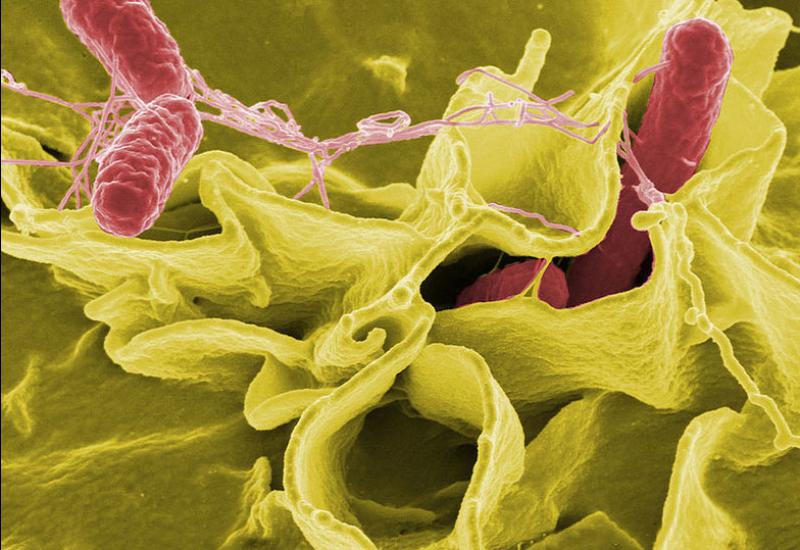Recently in the media there are reports of mass food poisoning. Often this is due to non-observance of sanitary-hygienic requirements in the production and storage of food products. When you eat at a cafe or other catering it is clear that you are in a certain degree of risk, trusting your health to others. But food poisoning can also happen at home.
What is food poisoning? How to protect yourself from it?
Food poisoning usually occurs by eating foods contaminated with large numbers of bacteria or toxins waste products of these bacteria. Food can contain a huge number of bacteria, but it can look fresh, good-quality and attractive. Under certain conditions, germs tend to multiply very quickly – within 12 hours from a single bacterium can produce about 7 billion. What are these conditions? Here they are: heat, moisture, time. Bacteria that can cause food poisoning, grow and reproduce mainly at temperatures close to human body temperature of 37 0 C. At temperatures below 10 0 C, the growth of all dangerous bacteria slows down. At temperatures above 63 C most bacteria are killed.
What is this dangerous bacteria? There are several groups of bacteria that can cause food poisoning to intestinal bacteria (Salmonella, Shigella dysenteriae, monochloromethane enterobacteria), staphylococci, clostridia (in particular, the causative agent of botulism). If Salmonella is usually found in certain foods (eggs, meat, poultry), clostridia are more common in the environment – in water, soil, excreta of animals. Staphylococci isolated from patients with inflammation of the throat or pustules on the skin.
Foods with a high content of sugar, salt, acid, fat, and dry products do not promote growth of bacteria.
Extremely favorable environment for microbes to breed are products with a high content of protein and moisture. This product and products from meat, poultry, fish, especially if they have not been properly cooked. For example, not fried chicken near the bones; the use of raw eggs for cooking cream; raw milk and cheese or sour cream, made from it; ready-made products purchased in the trading network.
In any case, do not eat half fried (undercooked) poultry and meat. After portioning or shredding cooked meat and fish subject to repeated heat treatment. Ready meals should be consumed fresh. If a food product prepared in advance, before use boil or cooked, and not heat “to warm”. Not be stored, prepared salads and baby food.
Store food according to the directions on the package. It is important to avoid contact between raw products and ready meals. For this dish refrigerate in a tightly sealed container. Eggs keep in the refrigerator. Wash the inner surface of the refrigerator with warm soda solution. With the aim of increasing the efficiency of the cooling unit systematically defrost the freezer.
You must wash your hands before preparing or eating food and after using the toilet. You should also wash your hands after developing raw eggs, raw meat and poultry.
Even if the product looks clean, rinse. Carefully wash fruits and vegetables that are consumed raw. Hot water with detergents for dishes and desktop in the kitchen, boards and kitchen tools, in particular those items, which were developed raw meat, poultry, eggs. Use on a clean kitchen towel and cloth.
Don't serve food, if there is any doubt in their quality.
Remember that pathogenic and pathogenic microbes are not visible to the naked eye. If you doubt the quality of a food, it is best to throw it away than to risk your health and the health of their loved ones. Be especially careful when preparing meals for guests. Remember that dishes cooked with technology failure, can turn a celebration into a tragedy. Do not prepare food for others if you have indigestion, respiratory infection or purulent infection of the skin.
Remain pure, follow the rules of preparation and storage of food and health is guaranteed.

